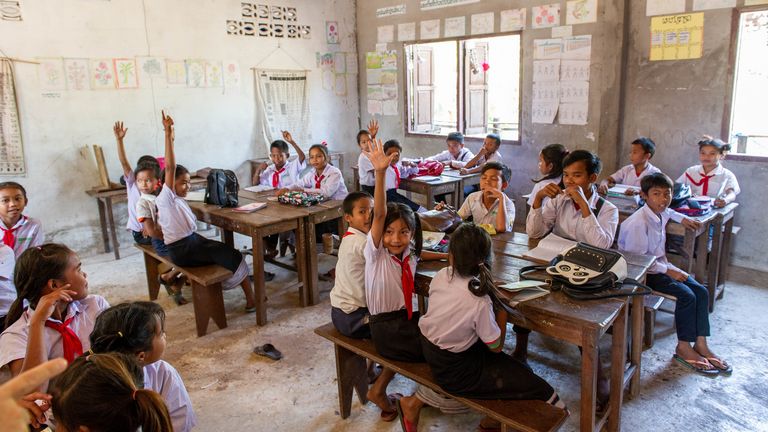Unit | Diseases and Programmes
The Disease and Programmes unit provides implementation research, technical assistance and consulting services in the areas of disease control and elimination programmes, surveillance, monitoring and evaluation, and health impact assessment. We focus on Africa, Asia and Latin America as well as Switzerland, while collaborating with clients and partners across the globe. Under a One Health and Planetary Health perspective, we are working with a focus on: (i) infectious disease outbreak investigations and prevention; (ii) health impact assessments and evaluations; and (iii) poverty-related diseases such as Neglected Tropical Diseases, tuberculosis and malaria.
From validation to application and health impact assessment
We pay particular attention to “access” for the populations concerned. We strive to support the introduction into health systems of novel tools and approaches, of which many are developed at Swiss TPH or by our partners. Through our first-hand experience and deep understanding of the challenges and priorities in current health systems, we accompany key stakeholders through contextualization of interventions, taking targeted measures for strengthening program performance and carefully assess health impacts of projects. For optimal results, we can rely on our strong collaboration with the Systems Strengthening and Health Promotion unit, other Swiss TPH units as well as with international partners, complementing DPU team members expertise, as appropriate.
Evidence-based strategies
Our work is grounded in evidence and carried out according to current best practices in global public health. We actively contribute to shaping evidence based decisions by sharing insights through scientific publications, reports and recommendations, policy briefs and teaching and training.
Our Areas of Expertise
Key Projects

ADOPT – Access to Pediatric Praziquantel
Schistosomiasis is a neglected tropical disease that poses a serious public health challenge. Current treatment recommendations and control efforts focus on distribution of praziquantel tablets to school-aged children and at-risk populations. Preschool-aged children (PSAC) represent another important at-risk group for whom a suitable formulation is being developed by the Pediatric Praziquantel Consortium. Development is closely coordinated with the World Health Organization (WHO). We focus on establishing optimal access and delivery strategies for different endemic settings in Africa. Read more

KEA - Competence Centre for Epidemiological Outbreak Investigations
In Switzerland, foodborne infections such as listeriosis, salmonellosis or campylobacteriosis are notifiable diseases and are under close surveillance by the Swiss Federal Office of Public Health (FOPH). Annually, one to three outbreaks due to these pathogens have been observed. The FOPH has mandated Swiss TPH to lead the Competence Centre for Epidemiological Outbreak Investigations (KEA), which has the aim to support the FOPH in the development of technical expertise related to epidemiological outbreak investigations and optimize the investigation preparedness. Read more

Environmental, Social, Economic and Health Impact Assessment (ESHIA)
Swiss TPH, together with consortium partners INSUCO and Oryx Expertise, is conducting a comprehensive Environmental, Social, Economic and Health Impact Assessment (ESHIA) in Burkina Faso on the use of genetically modified mosquitoes (GMMs) for future malaria control. Target Malaria - a vector control research collaborative based at Imperial College, London - aims to develop genetic technologies to modify mosquitoes to ultimately reduce malaria transmission. The ESHIA will comprehensively assess and anticipate the potential environmental, socio-economic and health impacts of this project on the local environment and population, and develop a management and monitoring plan for the identified impacts. Read more



 Christian Auer
Christian Auer
 Tanja Barth-Jaeggi
Tanja Barth-Jaeggi
 Anaïs Galli
Anaïs Galli
 Helena Greter
Helena Greter
 Patrick Hanlon
Patrick Hanlon
 Astrid Knoblauch
Astrid Knoblauch
 Nora Monnier
Nora Monnier
 Sarah Rajkumar
Sarah Rajkumar
 Jasmina Saric
Jasmina Saric
 Peter Steinmann
Peter Steinmann